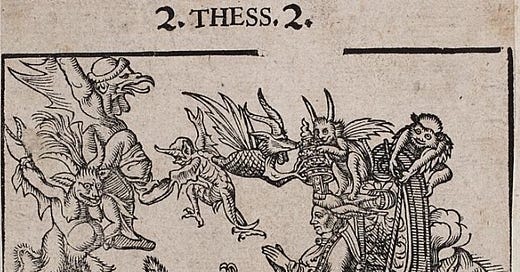From Humanism to the Reformation, as shaped by Erasmus and Luther
Review of Fatal Discord: Erasmus, Luther, and the Fight for the Western Mind by Michael Massing
Why, I always wondered, were the Renaissance and the Reformation so rigidly separated in history courses and books? Not only were they near-contemporaneous movements, but their ideas – questioning the 1000-year assurances and traditions of the medieval ages – seemed eminently compatible, twin harbingers of the modern age. This book, a kind of double bi…
Keep reading with a 7-day free trial
Subscribe to Crawdaddy’s Substack to keep reading this post and get 7 days of free access to the full post archives.



